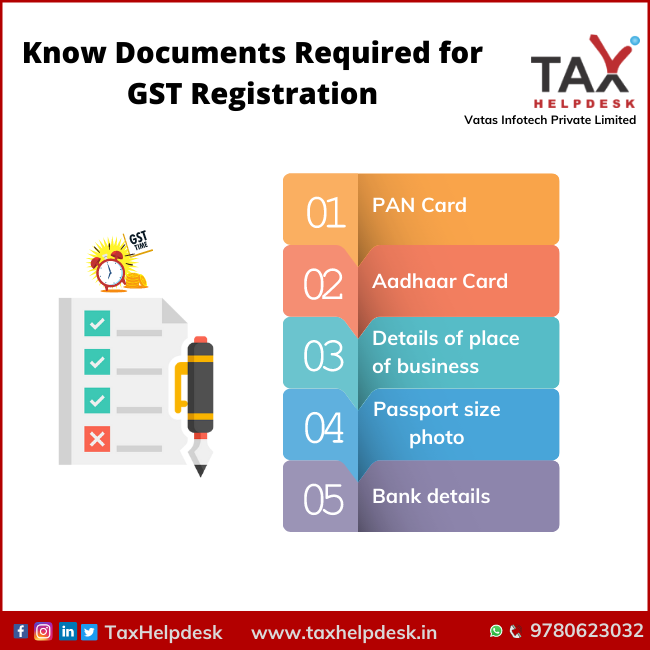CFO Account & Services: Your Trusted Companion for Hassle-Free GST Registration in Singapore
CFO Account & Services: Your Trusted Companion for Hassle-Free GST Registration in Singapore
Blog Article
Navigating the Intricacies of GST Registration: A Comprehensive Guide for Entrepreneur
Browsing the intricacies of GST enrollment can be an overwhelming task for many company owner, as it includes a myriad of rules, regulations, and processes that should be complied with. With the ever-evolving landscape of tax laws, making sure conformity and understanding the complexities of GST registration is important for the smooth operation of any type of organization. From establishing qualification and collecting the necessary documentation to enhancing operations for optimal performance, this comprehensive overview aims to give business owners with the understanding and tools required to browse the complexities of GST registration efficiently.
Qualification for GST Enrollment
Local business owner need to meet specific standards to establish their qualification for GST enrollment. Generally, organizations with a yearly turnover exceeding a certain threshold are needed to sign up for Goods and Solutions Tax (GST) This threshold differs by country, but it is necessary for entrepreneurs to remain informed regarding the specific regulations in their jurisdiction. Furthermore, businesses associated with interstate supplies, e-commerce, or the provision of particular defined services and items may also be mandated to register for GST, no matter of their turn over.
In addition, organizations that are signed up under any type of previous tax regime, such as Barrel or service tax obligation, are normally needed to change to GST enrollment. By adhering to the essential requirements, businesses can efficiently navigate the complexities of GST registration and run legitimately within the tax obligation framework.
Documents Needed for Enrollment
To finish the GST enrollment procedure, companies need to collect and submit an extensive set of papers. The vital papers needed for GST enrollment normally include evidence of service registration or consolidation such as the Certificate of Incorporation, partnership action, or any kind of various other registration certification.
In addition, specific documents connected to the nature of business, such as a checklist of solutions or items provided, HSN codes for products, and SAC codes for solutions, might be needed - Why choose CFO Account & Services for GST registration in Singapore. It is crucial for companies to make sure that all papers submitted are precise, up-to-date, and in the recommended format to stay clear of any delays or complications in the GST enrollment procedure
Refine of GST Registration
Having set up the requisite documents, companies continue to start the GST registration process by engaging with the online portal assigned for enrollment. This on the internet portal is the Item and Solutions Tax Network (GSTN) portal, which offers as the main system for all GST-related tasks in India. Upon accessing the portal, businesses are called for to fill in the GST registration form with precise details concerning their organization activities, turn over, and various other appropriate info.
As soon as the type is completed and submitted on the site, the GSTN confirms the details provided by the business. The candidate may be needed to give added details or explanation if any type of inconsistencies are located. Complying with successful verification, a GST registration certificate is issued to business entity. This certificate includes an one-of-a-kind Goods and Services Tax Identification Number (GSTIN) that is used for all GST-related purchases.
It is essential for companies to ensure that the information supplied throughout the GST registration process is exact and up to day to avoid any kind of potential issues or delays in getting the GST enrollment certificate.
Understanding GST Conformity

Businesses need to be conscious of the various GST conformity demands based on their turnover, nature of items or solutions, and the states in which they run. It is vital to stay upgraded on any kind of modifications in GST legislations and guidelines to stop any type of non-compliance concerns.
Non-compliance with GST regulations can lead to large fines, charges, and also legal repercussions. Companies need to invest time and resources in enlightening themselves and their team on GST compliance. Looking for expert assistance from tax obligation experts or professionals can likewise help in browsing the intricacies of GST conformity and ensuring that businesses operate within the lawful framework.

Tips for Optimizing Company Workflow
For boosted efficiency and productivity in organization operations, critical preparation and structured procedures are crucial parts. One pointer for maximizing business procedures is to take advantage of modern technology properly (Why choose CFO Account & Services for GST registration in Singapore). Executing the ideal software program options can automate recurring tasks, boost precision, and improve general process effectiveness. Furthermore, conducting regular performance evaluations and collecting comments from workers can supply important insights for determining traffic jams and locations for improvement.
An additional essential aspect is prioritizing jobs based upon their importance Source and due dates. By producing a clear power structure of jobs and establishing sensible timelines, services can guarantee that essential tasks are completed on time. Cultivating a culture of open interaction and cooperation amongst team members can lead to enhanced efficiency and advancement.

Final Thought
Finally, navigating the complexities of GST registration needs a clear understanding of eligibility requirements, needed documents, registration processes, and compliance requirements. By sticking to these guidelines and maximizing business operations, service owners can guarantee smooth operations and conformity with the GST laws. It is important for businesses to remain informed and upgraded on GST laws to prevent any charges or legal problems.
The essential files required for GST registration usually consist of evidence of organization enrollment or unification such as the Certificate of Consolidation, collaboration action, or any other registration certification.Having set up the requisite documents, companies proceed to launch the GST enrollment process by engaging with the on the internet site designated for registration. Upon accessing the portal, services are needed to important site load out the GST enrollment form with precise information regarding their business tasks, turn over, and various other relevant details.
In order to preserve adherence to GST guidelines and avoid penalties, businesses need to prioritize recognizing GST conformity. By adhering to these guidelines and optimizing service procedures, organization owners can make sure smooth procedures and compliance with the GST guidelines.
Report this page